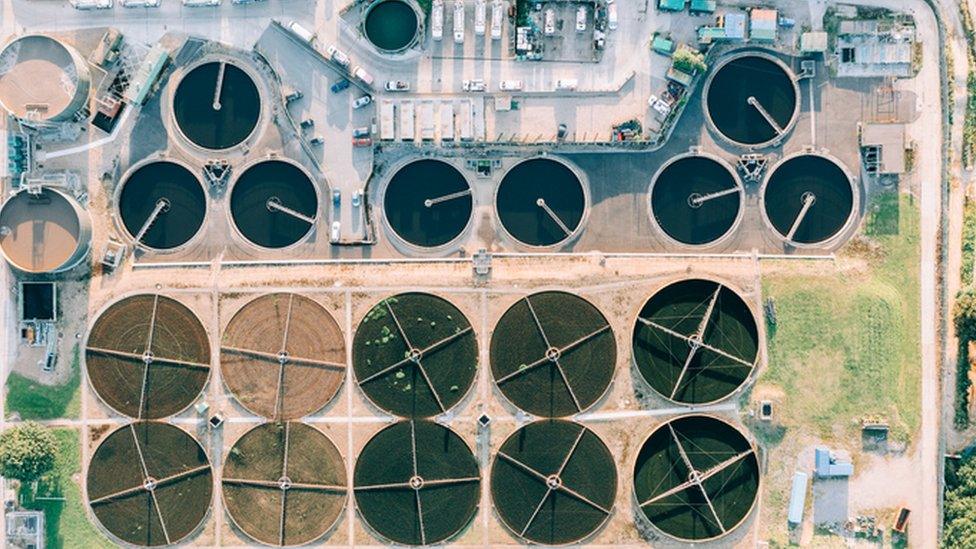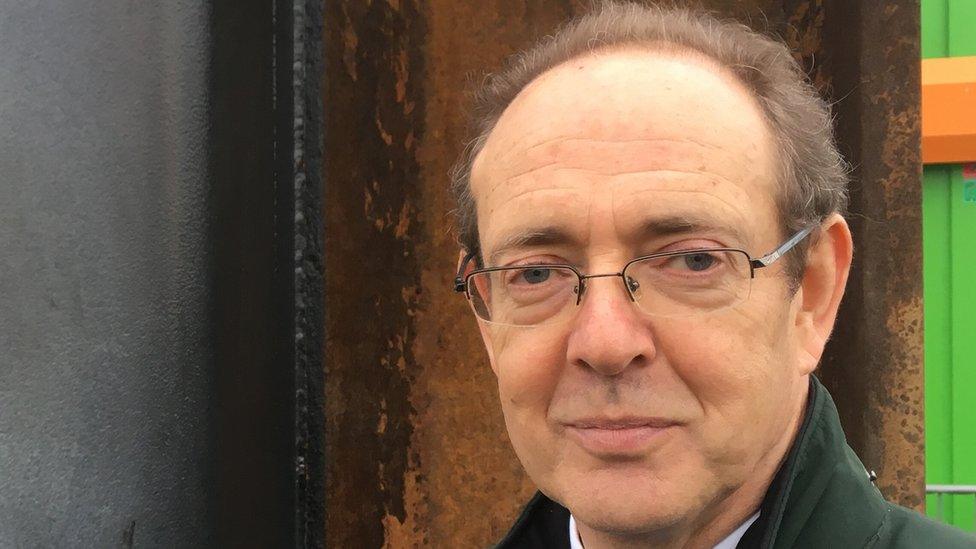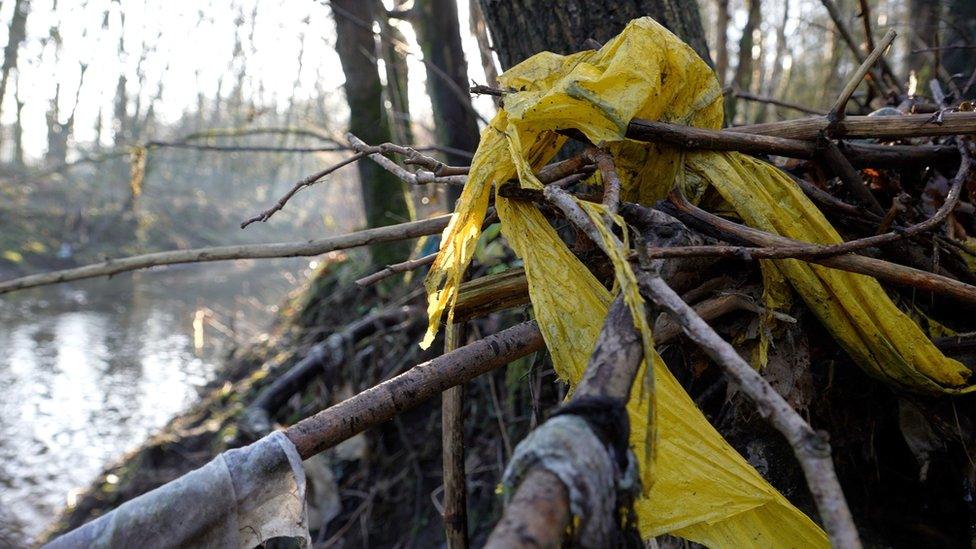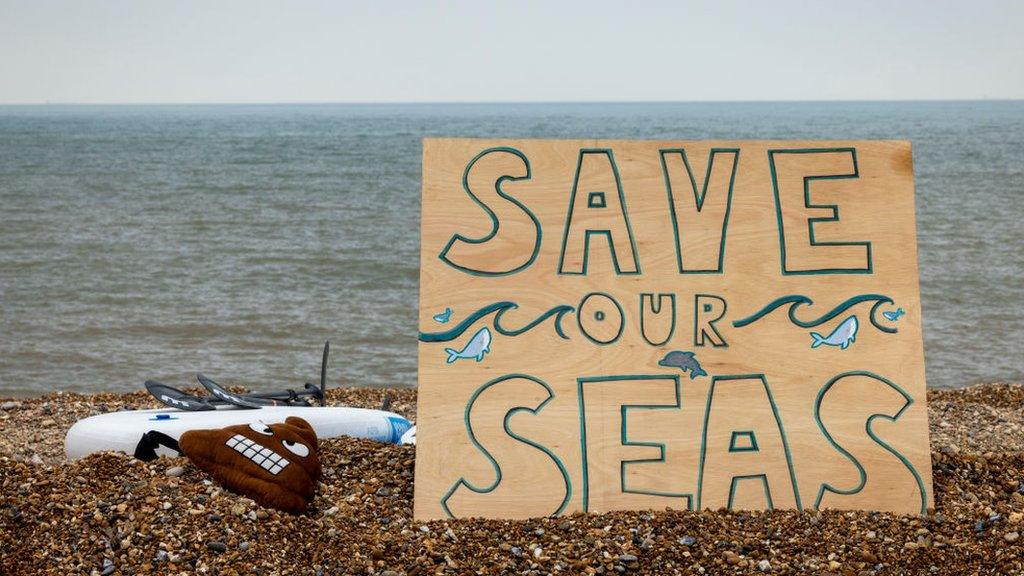Be less squeamish about drinking sewage water, says expert
- Published

The sewage treatment plant in Guildford in Surrey recently submitted plans to treat wastewater from a population of 120,000 people
People need to be 'less squeamish' about drinking water taken from sewage treatment plants, the head of the Environment Agency has said.
Water companies are planning "toilet-to-tap" systems, also known as water recycling, to turn sewage from lavatories into drinking water by treating it.
By 2030, toilet water could be deposited into rivers near treatment plants so it can be collected and processed as drinking water.
Writing in the Sunday Times, external, Sir James Bevan said the "unpopular" move would help protect the UK's water supply.
Sir James said drinking water reprocessed from sewage is "perfectly safe and healthy, but not something many people fancy".
In 2013, Thames Water announced plans to use recycled toilet waste in London's tap water, adding it hoped to implement a wastewater recycling scheme by 2025.
The advice comes as water supplies are placed under strain due to climate change.
Sir James wrote that people need to "change the way they think about water", and "treat it as a precious resource, not a free good".
He added: "We need to remember where it comes from: when we turn on the tap, what comes out started in a river, lake or aquifer. The more we take, the more we drain those sources and put stress on nature and wildlife.

Sir James urged people to 'think differently' about water resources
"If we are going to get there, we are all going to have to think differently. Some of these measures will be unpopular, so future governments will need to show political will."
Earlier this year, Singapore's water agency launched a new type of beer with water made from liquid recycled from sewage.
They launched the drink, which is available in shops and bars, to raise awareness of the country's water scarcity issues and the innovative solutions it has come up with to solve those problems.
Would you drink beer made from urine?
In England, depleted rivers, reservoirs and aquifers have led to ten areas being given drought status by the Environment Agency following scorching temperatures this summer, reaching record highs of 40C.
Six water companies have restricted water usage in response, imposing hosepipe bans across areas including Yorkshire, Wales and the south-east England.
People concerned about their water usage can make small changes to their lifestyle and still make a big difference, Sir James said.
"Take showers, not baths. Cram the dishwasher or washing machine and only run it when it's full. Fix leaks: many are in our own own homes, not water company pipes," he added.

TRANSFER TRAGEDY: How did Emiliano Sala end up on that plane?
WATCHING PAINT DRY: Does more expensive paint actually offer a better finish?

Related topics
- Published26 August 2022

